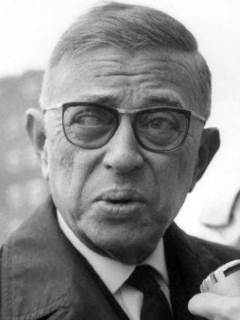
Publication details
Publisher: Springer
Place: Berlin
Year: 1995
Pages: 231-253
Series: Contributions to Phenomenology
ISBN (Hardback): 9789048145706
Full citation:
, "The philosophical framework of Sartre's theory of the theater", in: The prism of the self, Berlin, Springer, 1995


The philosophical framework of Sartre's theory of the theater
pp. 231-253
in: Steven Crowell (ed), The prism of the self, Berlin, Springer, 1995Abstract
Both in his life and in his thought Jean-Paul Sartre was frequently theatrical, as exaggerated as his prose. He really believed that "the chief source of great tragedy is human freedom." In this spirit he rewrote several ancient myths and was not at all bothered by the ironic incongruity of asserting that "Oedipus is free; Antigone and Prometheus are free. The fate we think we find in ancient drama is only the other side of freedom. Passions themselves are freedom caught in their own trap."1 Sartre's continual invocation of freedom and his own experience of being free pervade all his writings.
Cited authors
Publication details
Publisher: Springer
Place: Berlin
Year: 1995
Pages: 231-253
Series: Contributions to Phenomenology
ISBN (Hardback): 9789048145706
Full citation:
, "The philosophical framework of Sartre's theory of the theater", in: The prism of the self, Berlin, Springer, 1995

